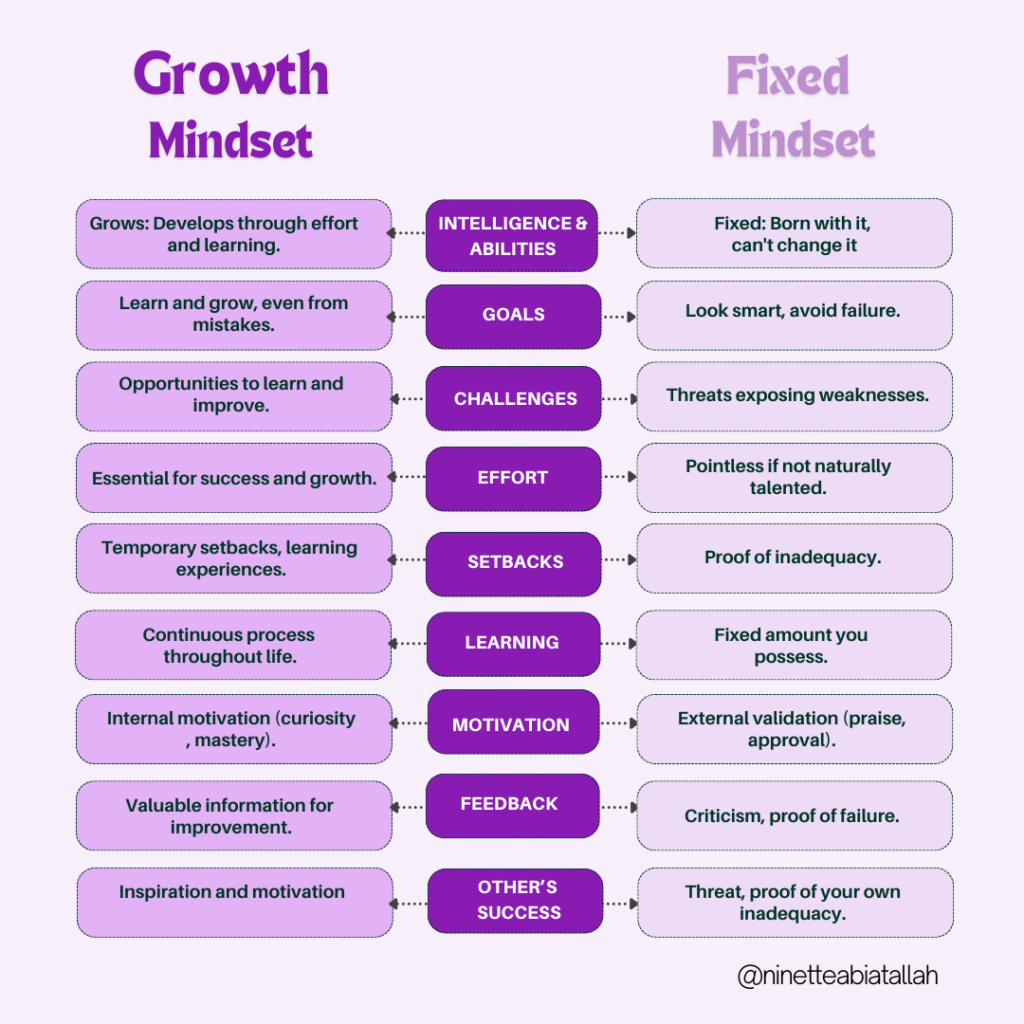By Ninette Abi Atallah
Ever feel like everyone’s getting ahead while you’re stuck in the dust? That nagging sense of falling behind has a surprising explanation – it’s not just you!
There’s a psychosocial reason for this feeling. This article will explore the concept of feeling behind, its impact on our lives, and equip you with evidence-based strategies to manage this feeling and chart your own path to success.
The impact of feeling behind on our mental well-being
The feeling of falling behind permeates various aspects of our lives. In his book, Status Anxiety, Alain de Botton explores this phenomenon, particularly in business. He terms it “status anxiety,” which refers to the worry of not measuring up to societal standards of success. However, this anxiety extends far beyond professional achievements. It can also manifest in our personal lives, influencing our perception of milestones like marriage or remaining single.
The feeling of falling behind is often linked to comparing ourselves to others or our own internal goals. This comparison can have negative effects, like increased stress and lower self-esteem. It might also lead to feelings of inadequacy, especially when we perceive others as having their lives perfectly on track. One might think, “Everyone has their lives figured out except for me; I must be a loser or something.”
In 1954, psychologist Leon Festinger introduced the Social Comparison Theory (SCT). This theory proposes that a fundamental human drive compels us to evaluate ourselves by comparing ourselves to others.
There are two main types of social comparison: upward social comparison and downward social comparison.
Upward social comparison involves comparing ourselves to those we perceive as better or superior to us. This type of comparison can inspire us to improve ourselves.
Downward social comparison involves comparing ourselves to those we perceive as less successful. This kind of comparison can boost our self-esteem by highlighting our own strengths.
In this context, a new term was added to the Oxford English Dictionary in 2013: “Fear of Missing Out” (FOMO). Psychologists define it as a “pervasive apprehension that others might be having rewarding experiences from which one is absent.”
This feeling can be temporary, but if it persists long-term, it may lead to feelings of social inferiority, loneliness, or even intense rage. FOMO often stems from the constant comparison between our own lives and the seemingly perfect lives portrayed on social media.
Here’s an example to illustrate this point.
Laura is scrolling through social media when she sees her friend Emma posting about her seemingly perfect life: a handsome husband, happy children, and a delightful vacation in Peru. Laura becomes curious and keeps scrolling, seeing photos of Emma celebrating a new job at a prestigious firm. This comparison triggers self-doubt and a feeling of falling behind in Laura’s own life.
Scientifically backed strategies to manage the feeling of falling behind
As mentioned above the feeling of feeling behind emanates from the comparison, yet comparison in itself is not bad for when we reflect on it, it may lead to a better understanding of ourselves. A growing body of research suggests several evidence-based strategies can effectively mitigate feelings of falling behind and enhance overall well-being.
1. Cultivate a growth mindset
Psychologist Carol Dweck (2008) identified two contrasting mindsets: fixed and growth. People with a fixed mindset believe their abilities and potential are limited. They view failures as evidence of inadequacy and criticism as proof of failure. Conversely, people with a growth mindset believe in their ability to learn and grow. They see setbacks as opportunities for improvement.
A growth mindset expands possibilities and leads to positive outcomes. Individuals who continuously challenge themselves become more resilient. This concept aligns with Nassim Taleb’s idea of “antifragility,” which describes the ability to not only survive shocks but to thrive and reach new heights after them.

Adapted from the work of psychologist Carol Dweck
2. Set Realistic Goals and Take small steps
Defining success accurately requires clear measurements. Success isn’t a final destination; it’s the journey of taking small, daily steps that lead to progress. Therefore, instead of comparing ourselves to others, we should set realistic goals with measurable criteria to track our progress.
SMART goals are a well-known method for effectively managing and achieving personal and professional goals. Let’s break down each element of SMART goals:
- Specific: The more specific, the better. Instead of a vague goal to “be healthier,” aim for “exercise three times a week.”
- Measurable: Having a clear metric to track progress is crucial. An example of a writing goal: “Write 2 pages a day for my thesis.”
- Achievable: Goals should be challenging but attainable to avoid feelings of helplessness or inadequacy. Aiming for a six-pack in just one week is an unrealistic example.
- Relevant: Ambition is great, but random goals that don’t serve your life purpose aren’t helpful. Consider if the goal aligns with your long-term personal or professional goals.
- Time-Bound: “Travel one day” is a weak plan. Setting clear deadlines fosters productivity and increases the likelihood of achieving your goals.
3- Limiting Social Media Consumption
Completely giving up social media might not be realistic or beneficial. However, setting limits on how much time you spend on these platforms and the purpose of your use can be a more effective solution.
Be mindful of who you follow. If someone’s success triggers feelings of inadequacy, use this as an opportunity for self-reflection. Remember, social media is often a highlight reel, not a reflection of someone’s entire life. Everyone experiences challenges and setbacks, but these are rarely shared online.
4- Build a support system
A strong support system is the bedrock of resilience, offering encouragement and comfort when facing challenges. Surrounding yourself with positive and supportive people can significantly impact your well-being. Whether it’s practical help like childcare, a listening ear during tough times, or simply a shared laugh, a support system provides a safety net and fosters a sense of belonging.
Research by Cohen and Wills (1985) suggests that social support can buffer the effects of stress, leading to better mental health outcomes. Social interactions provide emotional comfort and reduce feelings of isolation.
Ensure your support system includes a variety of people, such as family, friends, mentors, and colleagues. This diversity provides a range of perspectives, resources, and strengthens your overall support network. Remember, strong support systems are built on reciprocity. Be there for others as they are for you, fostering a more resilient and connected community.
Stop What-ifing, start living
Growing up, I encountered scenarios of “what ifs” and external factors blamed for life’s outcomes. Slowly, I realized that we are responsible for how our lives turn out to be. Yes, external conditions affect us, but our determination still shapes everything.
Imagine experiencing reduced stress, increased satisfaction, and a more fulfilling existence as you focus on your own progress. Conversely, dwelling on blame and inadequacy can trap you in a negative cycle. Feeling weak is understandable, and sometimes professional help is needed to break free.
Empower Yourself: Take the First Step Today
By applying the strategies mentioned in this article, you can significantly enhance your well-being. Remember, feeling behind is a common experience, often caused by social comparison, unclear goals, or a lack of self-understanding. The good news? You have the power to overcome these challenges.
Start by reframing your thoughts, setting clear goals that motivate you, and building a strong support system. Don’t hesitate to seek professional help from a licensed therapist or coach if you need additional guidance. Take control of your life, the journey to a more fulfilling existence begins now!
References
- Dweck, C. S. (2006). Mindset: The New Psychology of Success. Random House
- Eby, L. T., Allen, T. D., Evans, S. C., Ng, T., & DuBois, D. L. (2008). Does mentoring matter? A multidisciplinary meta-analysis comparing mentored and non-mentored individuals. Journal of Vocational Behavior, 72(2), 254-267.
- Uchino, B. N. (2009). Understanding the links between social support and physical health: A lifespan perspective with emphasis on the separability of perceived and received support. Perspectives on Psychological Science, 4(3), 236-255.
- Holt-Lunstad, J., Smith, T. B., & Layton, J. B. (2010). Social relationships and mortality risk: A meta-analytic review. PLOS Medicine, 7(7), e1000316.
- Cohen, S., & Wills, T. A. (1985). Stress, Social Support, and the Buffering Hypothesis. Psychological Bulletin, 98(2), 310-357.
- Festinger, L. (1954). A Theory of Social Comparison Processes. Human Relations, 7(2), 117-140.
Author Bio
Ninette Abi Atallah is a dynamic psychology-based coach dedicated to empowering individuals and fostering resilience. Currently finalizing her master’s degree in research psychology, Ninette integrates cutting-edge psychological principles with practical coaching techniques.
As an IEMT practitioner and resilience coach trained in wholeness work, Ninette offers unique insights and strategies tailored to small business owners and freelancers. Her diverse academic background includes a BA in Audio Visual Arts and a year of teaching psychology, further enriching her approach to mental health and personal development. Ninette delivers impactful online and in-person sessions, emphasizing mental health awareness and holistic well-being. Her clients consistently report enhanced confidence and a renewed sense of empowerment after their sessions. Discover how Ninette can help you unlock your potential by booking a session today at https://www.ninetteabiatallah.com/contact/

